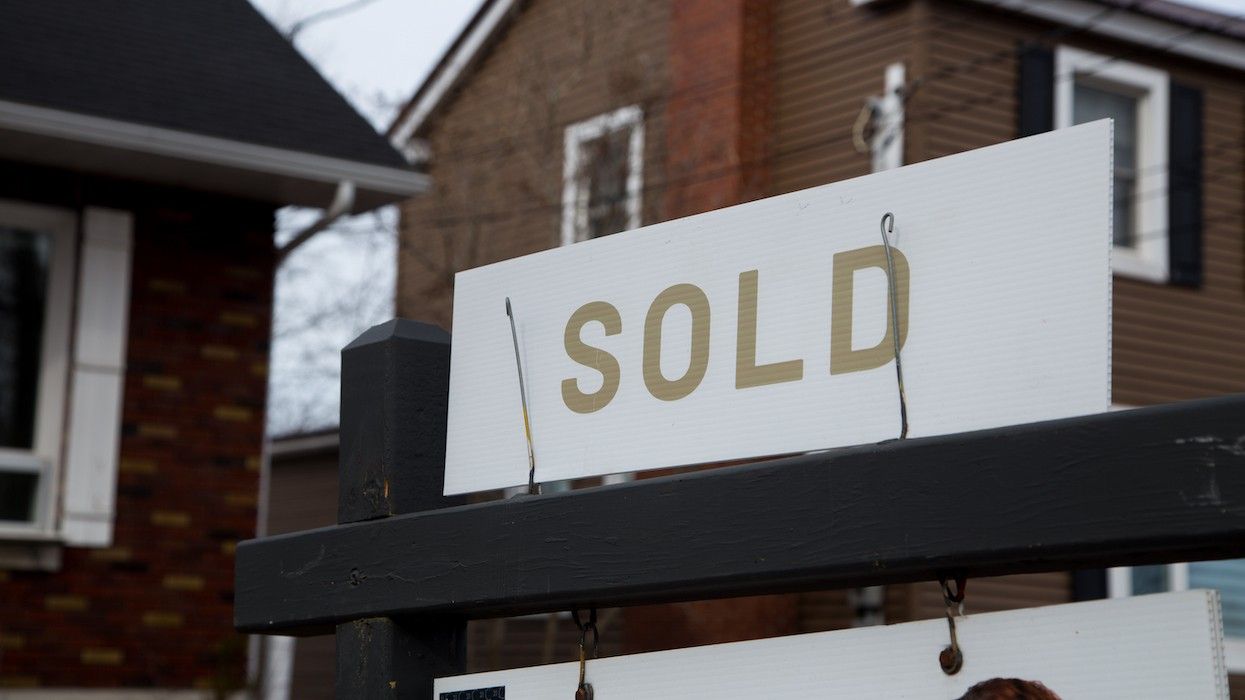With Toronto City Council voting in favour of a new municipal speculation tax on Tuesday, just days after the federal government announced that they’re extending their foreign buyer ban by two years, there’s been no shortage of discourse around why all levels of government are so fixated on foreign home buyers.
There’s wariness in the air, for sure; housing market stakeholders are vocally concerned that these coinciding policy levers are not only redundant, but are yet to be proven effective.
“I don’t think foreign bans and taxes are warranted,” says Alex Beheshti, Urban Planner, Land Economist, and Consultant at Altus Group. “If taxes and bans were going to help with affordability, we should have seen a measurable impact by now.”
Speaking specifically to the Municipal Non-Resident Speculation Tax (MNRST) that was passed in Toronto earlier this week, Beheshti tells STOREYS that one of his main concerns is that it’s being touted as a solution to the housing crisis. On the contrary, he doubts that the MNRST will make much of a difference to the housing market at all.
“Toronto will continue to experience a housing crisis even with this policy in place as it doesn’t address any of the actual issues impacting our housing market,” he says. “On top of being an ineffective policy, it makes Toronto appear to be unwelcoming and a non-competitive city.”
Beheshti also points out that Ontario has a foreign buyer tax already in place. This essentially means that, as of this week, Toronto is due to be cloaked in three levels of restrictive foreign buyer policy: the federal ban, which is now in effect until 2027, the MNRST, which will go into effect in 2025 at 10%, and the Province’s Non-Resident Speculation Tax (NRST), which was introduced in 2017 and was hiked to 25% in late 2022.
It’s getting convoluted, suffice to say. Even from a revenue perspective, there are a number of pretty blatant overlaps to speak of.
According to a mid-January report from Toronto’s Chief Financial Officer and Treasurer Stephen Conforti, the Province’s NRST was bringing in between $156.7M and $200.3M in annual revenue between 2017 and 2022. However, with the federal foreign buyer ban now in effect, revenue is expected to plunge in 2023 — although activity for the year is still being collected.
Revenues from the NRST that can be traced back to the City of Toronto are estimated to fall more than 65% in 2023 according to the same report (from $91.5M in 2022 to an estimated $31.2M in 2023).
In addition, the federal foreign ban will snake away revenues from Toronto’s new MNRST. Per Conforti’s report, prospective revenues from the MNRST have been slashed from around $15M to $9.6M now that the ban has been extended to 2027.
Meanwhile, there’s very limited data to support that non-resident investors actually have a notable or problematic presence in the housing market. In Ontario, for example, “non-resident participation” in the market only clocks in at 3.1% according to the latest available data from Statistics Canada.
“It's really easy to make foreigners the target here, but I just think it’s a total distraction,” says Eric Lombardi, a housing advocate with More Neighbours Toronto.
“You know, the vast majority of speculation in Canada's housing market is from domestic speculation. And what government isn't acknowledging it the reasons behind why speculation exists in the first place.”
Government can tax and ban foreign buyers to the high heavens, but Lombardi stresses that the real issue driving real estate speculation — and yanking affordability downhill — is supply-demand conditions, which continue to be remarkably tight across the country. He believes this is a matter which is being mishandled by government.
“Between the federal government and how it's managed the immigration program, and the provincial government, which has not acted on any of the recommendations from the Housing Affordability Task Force Report in any meaningful way, and municipalities — they have not really pursued real policy change from a process perspective, from a land-use perspective, from an economic perspective, and from a demand perspective,” he says.
“So if you're an investor or if you have capital in Canada, and you're looking at the housing market and seeing that governments are basically guaranteeing that prices go up over the long term, why wouldn’t you speculate?”
What’s more, to the extent that any of these foreign buyer measures are, or are going to be, effective in detering non-residents from homeownership, they would also compromise a degree of capital in the housing market.
“Those who are trying to build new housing have a smaller buyer pool, which means that fewer projects are going to get off the ground. For those projects, you know, one by one, it’s fine, but from a macroeconomic perspective, that means less housing supply a couple of years down the road, and that will also lead to increases in prices and increases in rent,” Lombardi says.
“Banning foreign buyers is maybe political feel-good, but it’s not meaningful. That's really the point: all of this is a distraction from the actions that all levels of government need to be taking to make housing more affordable in the long term.”





















